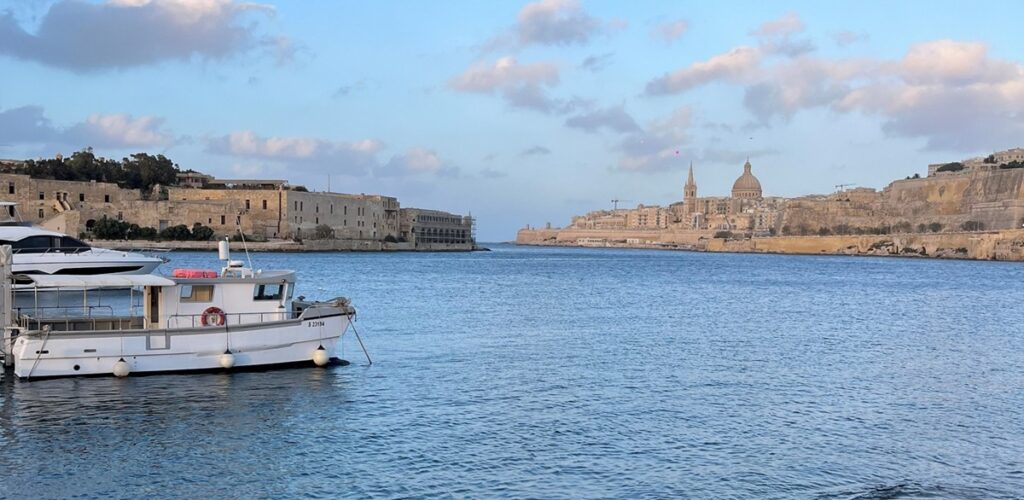Malta, an island located in the center of the Mediterranean Sea, has been a transit or stopover point for people on the move throughout history. Currently, Malta is home to more than 11,000 refugees and 2,000 asylum seekers, mainly from Bangladesh, Libya, Syria, Sudan and Ukraine. Since the full-scale invasion of Ukraine began in 2022, Malta has also issued more than 2,000 Temporary Protection Certificates, 75% of which have been issued to women and children. Temporary Protection is an exceptional measure to provide immediate and temporary protection to people who have fled from countries outside the European Union (EU) and who are unable to return to their country of origin.
WHO Europe, in collaboration with the Maltese Ministry of Health, hosted the first-ever Knowledge Forum on Refugee and Migrant Health in Malta from 16-18 April this year. The Knowledge Forum aims to provide a platform for leading government and humanitarian organisations, civil society, UN agencies and relevant stakeholders to promote knowledge, exchange country experiences, identify areas of collaboration and facilitate the implementation of the Action Plan on Refugee and Migrant Health in the WHO European Region 2023-2030.
“It is very important to bring guests to our country to discuss such important issues, so networking is crucial because it will improve our performance and ultimately lead to several initiatives to uphold our responsibilities. [refugees and] “Immigration numbers continue to grow,” said Jo Etienne Abela, Malta's minister of health and ageing.
Supporting refugees and migrants
“Malta's greatest success is [refugees and] “We will protect the health of migrants from the moment they arrive in Malta,” said Dr Valeska Padovese, Malta's special adviser on migrant health.
The country's primary health care sector runs outreach services to reach refugees and migrants in detention centres – accessing health care is a major challenge for many – and this on-the-ground service has helped ensure that even the most vulnerable have access to health care.
“When it comes to initial reception and medical screening, Malta has been at the frontline and has learned lessons over the years,” said Dr Marius Caruana, chief physician for the Migrant Health Service in the Primary Health Care Department.
Dr Padovese and her team have also set up a sexual health clinic on the twin island of Gozo, and their work has enabled many refugees and migrants to access services closer to home. “We're talking about hard-to-reach populations, but most of the time it's our services that are hard to reach,” she points out.
Training medical professionals
Malta provides comprehensive health services, including access to free vaccines as part of the national immunization schedule. Recognizing that refugees and migrants require specific, culturally sensitive services and language assistance tailored to their needs, Malta is ensuring that these considerations are integrated into mainstream services. This approach is crucial as it promotes equitable access to health services.
In Malta, the focus on refugee and migrant health is no longer limited to public health, but rather there is an increased need for doctors to learn more about their needs and sensitivities.
“I had very little knowledge about the needs of refugees and migrants. My training was in primary health care in the Maltese community, so you are surprised by the different ethnicities, language barriers and certain health conditions that are not common in Malta. Sometimes you start diagnosing illnesses that you have read about in books,” says Dr Caruana, highlighting the importance of medical training.
Collaboration and sharing of good practices
Malta is a small country with limited resources. While resource concentration is possible, finding sufficient resources can be difficult. Coordination is key to ensure the health needs of refugees and migrants are met.
“Resource gaps must be filled by preparedness, capacity building and a holistic approach to migrant inflows and all the needs that come with them. Health services, civil protection services and internal security services must work together in a well-honed system,” said Joe Etienne Abela, highlighting that Malta has performed well in such situations.
Social cohesion does not happen quickly, nor is it a one-sided effort. Adapting to new cultures, languages, systems, climates and environments is only one aspect of social cohesion. Communities play a key role in the integration of refugees and immigrants, which is essential to achieving health equity.
“The new generation is growing up with immigrants, unlike my parents' generation, for example. So I think there's more integration and acceptance and we're helping each other. The Maltese people are very warm and welcoming. I think this is one aspect we can teach other countries – to be more open to different cultures,” said Dr Elaine Claire Lautier, a consultant in public health medicine in Malta.
“I think we should see each other as human beings and help each other live the best, safest, most humane life possible for us and for everyone who comes to this country,” she added.
The 2024 Knowledge Forum on Refugee and Migrant Health was the first in a series that WHO/Europe aims to continue. This year's Forum was co-funded by the EU. WHO, in collaboration with the International Organization for Migration (IOM) and the EU, is supporting countries to improve access to health services for refugees and displaced people from Ukraine.



